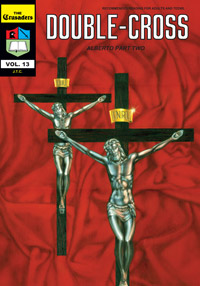Irish President Takes Protestant Communion Stirs Rome's Ire
When the newly-elected President of Ireland, Mary McAleese, dared to receive communion at a non-Catholic church recently, she proved again just how central the Eucharist is to the power and identity of Roman Catholicism.
When the picture of her receiving communion appeared in newspapers, Catholic clergy and theologians immediately pointed out that Catholics are not permitted to received communion in Protestant churches.
The Archbishop of Dublin, Desmond Connell, called the actions deceptive and a "sham." He said that receiving communion was a profession of faith and that, "You cannot at the same time celebrate the Eucharist professing that apostolic faith as we would maintain it, and professing a faith that is other than the Apostolic faith, that is incompatible with it." What was at stake was, "not only the nature of the Eucharist, but the future of ecumenism and the ecumenical movement."
Few people realized the significance of this statement. Rome's view of the "Eucharist" is that the bread and wine is the actual "body, blood, soul and divinity" of Jesus Christ after the priest has prayed a prayer of "consecration" over it. The Protestant view is that it is still bread and wine, symbolical of the new covenant in Christ's blood.
The central hang-up in the ecumenical movement is over this view of the Eucharist. Rome will never cut any slack on this view for to do so would be to relinquish the central control mechanism in their system of bondage. They insist that Jesus' death on the cross is not enough to forgive our sin once and for all. He must be sacrificed again during the Mass. If the Roman Catholic does not continually participate in the Mass and receive the Jesus-wafer on his tongue, his sins are not fully forgiven. To get on-going forgiveness, he must keep coming back. If Rome ever agrees that the bread and wine are only symbolical of Christ's finished work, then salvation is complete, all Christians become brothers and the whole priestcraft system is no longer necessary. Pope, Vatican, Hierarchy and all comes tumbling down.
Rome's view of "ecumenism" is "everybody must come back to Rome." Any compromise on this would destroy the whole structure of popery, carefully constructed over nearly 2 millennia.
- See more articles on related topics:
- Catholicism
- Ecumenism
- Eucharist
Other Articles from March/April 1998:
- Authorized Version No More Archaic Than Modern Versions Or Even The Newspapers
- Castro Welcomes Pope, Harasses Home Churches
- A Chick Tract Filled the Gap
- Graham Agrees with Rome on Salvation
of Unreached
- Go Where the Lost Are!
- A Message From Jack Chick March 1998
- Salvation - Muslim Style
- It Pays to Read Chick Tracts to Children
- Is It Hard To Be Saved?
- Court Upholds Student's Tract Passing Rights
More on Catholicism:
Products of Interest:
-

Alberto
32-PAGE, FULL COLOR COMIC BOOK - Alberto Series Part 1 - Here is how Alberto, as a Jesuit, helped destroy churches and ministries. But as he read the Scriptures, he saw that Catholicism couldn’t save.
-

Double-Cross
32-PAGE, FULL COLOR COMIC BOOK - Alberto Series Part 2 - After his salvation, Alberto is a hunted man. No Jesuit can leave his order alive! He reveals the infiltration of Protestant organizations, and warns of false ‘brethren’ in our midst.
-

Babylon Religion
224 pages
Learn how a Babylonian goddess became the Virgin Mary. An easy-to-read history of Catholicism's Babylonian origin. -

Answers To My Catholic Friends
64 pages
A gentle witness you can give Catholics that deals with venerating images, purgatory, where popes go when they die, and more.



